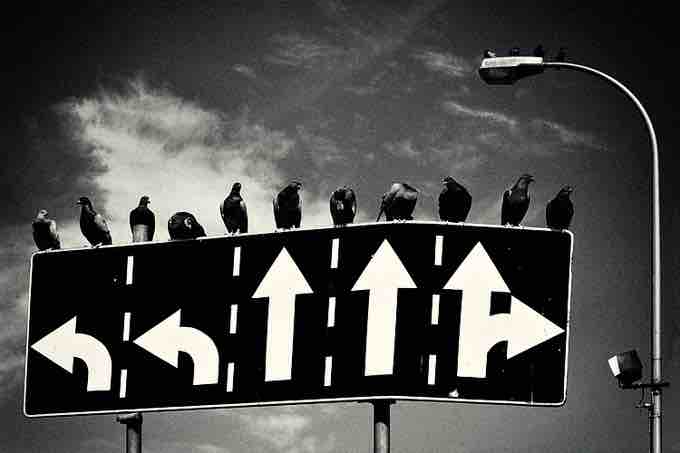After spending so long looking at your paper on the level of individual words and sentences, it can be helpful to return to the big picture. Before you turn your paper in, read it over one more time. You do not have to look for specific problems. Just try to get a general sense of what your paper has turned into.
It can be helpful to imagine that you are reading somebody else's paper during this final read-through. What would you say to a peer if this were his or her paper instead of your own? Does it have a clear thesis? Does the argument make sense? You can also try reading your paper out loud to see how it sounds.

Directions
Reviewing work throughout the writing process helps make sure it's moving in the right direction.
The purpose of a final review is not to prompt major changes, as you already addressed those when you revised for purpose. Instead, doing a final review will help you see how all the changes you made work together as a whole.
This is also your last chance to make sure you meet the criteria of the assignment. Are you still saying what you intended to say? Did you complete the task you set for yourself in the introduction? Look at how your argument has developed and whether you are happy with it. If you're not, you can go back into revision mode. If you are, then congratulations—you can finally say that your paper is complete.
Evaluating Your Process
At this point, you can make a final assessment of your process. The learning comes not only from your research and writing, but also from reflection about the process you went through. After you read your paper, ask yourself the following questions:
- How creative is the paper? If it feels a little bland to you, you might consider spending additional time using the prewriting activities the next time you write a paper. You might also consider reading more of the type of writing you're doing to get a feel for the style and to spark your own imagination.
- Does it feel like your best effort? Do you feel some disappointment when you read your paper, as if you know you could have done better? Time is often a factor here. Budgeting in time for reflection isn't often taught, but it's a crucial aspect of the creative process.
- Where did you get tripped up? Looking back over the experience of writing, which parts of the process did you avoid? Which parts were difficult to wrap up and move on from? Which parts did you enjoy most? Can you see all of the answers reflected in your writing? Is the writing good but the research scanty, or is it heavily cited but disorganized? How might you address balance in the process next time around?
- What did you enjoy? Dwell for at least a moment or two on the parts of the process you most enjoyed. Did you have a great conversation with a friend during the brainstorming session? Did you write an especially strong paragraph for one of your claims? Did you let yourself sleep on a problem and wake up with the answer? Did you feel like you found your voice when writing the introduction? Now give yourself a moment to consider how to expand those good feelings into the rest of the process next time you write.
Writing is an art. It's not something we're born doing, yet it's something we're asked to do a lot in professional work. Making the process enjoyable for yourself is both useful and important. You have the power to make your next writing experience even better. Keep working at the parts of writing that are more difficult for you while expanding on the phases that delight you, and your next paper is bound to be more enjoyable, more inspired, and, ultimately, better.